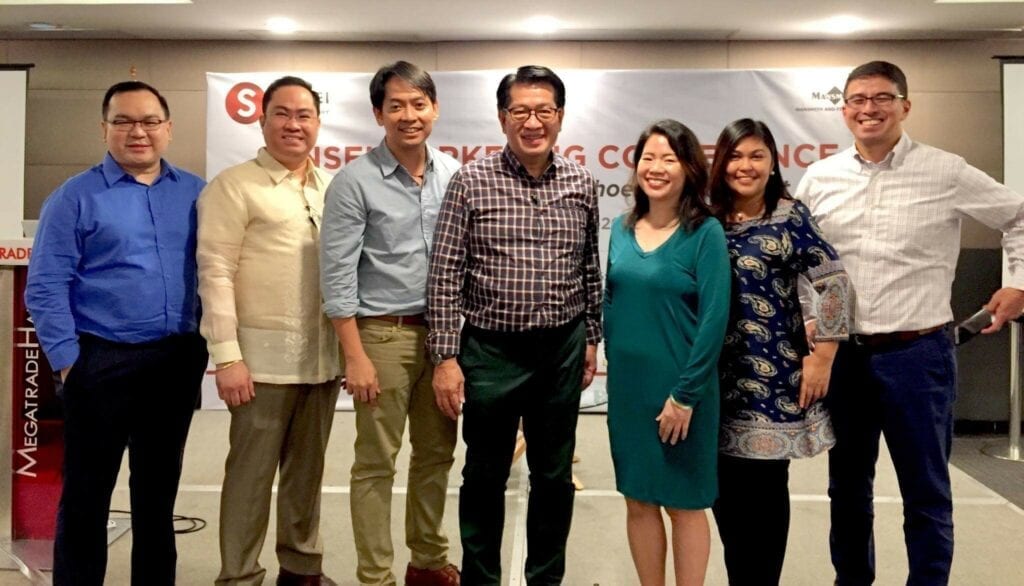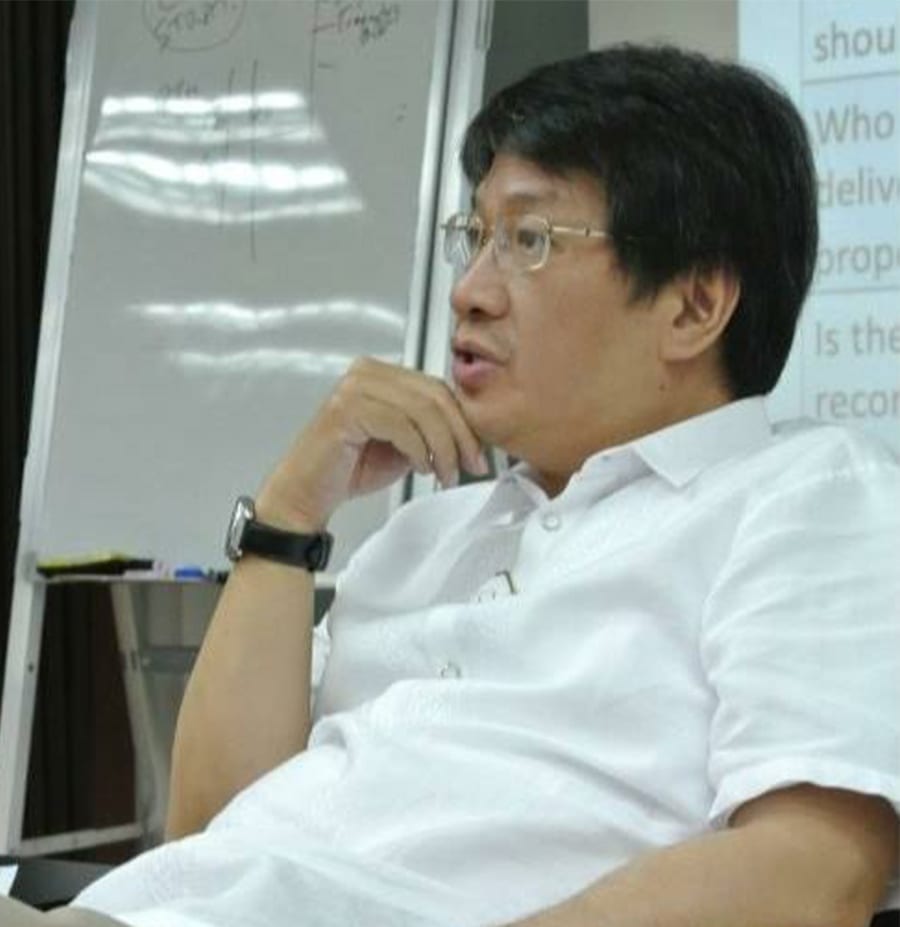
From left: Ian Santos, Atty Alvin Alburo, Ronnie Traballo, Josiah Go, Imelda Lim, Milona Barraca and Ramon Barredo.
Sensei refers to a “master” or “teacher”.
I was the insight moderator of the recently concluded Sensei Marketing Conference, organized by Sensei Business Academy. And here are some lessons shared during the said conference that focused on Maximizing Returns on a Shoestring Budget.
Ian Santos, the Country Manager of Mundipharma, maker of Betadine, started with his session on Channel Marketing.
1. Omni-channel can be improved by being seamless (unifying customer experience across different platforms), having a single champion and common experience metrics (the online team is not separate from the store operator’s team), proper sales attribution in an integrated manner, and real time inventory and management processes (one that follows the customer across all channels).
2. Use service output demand (SOD) or what customers value to help shape channel design and channel marketing.
3. Look into cost of customer acquisition (COCA) and campaign ROI per channel.
Milona Barraca, former Trade Marketing Manager of Abbott Nutritional and Reckitt Benckiser shared her expertise on Shopper Marketing.
1. Shopper marketing is about changing shopper behavior ethically to say yes by nudging them.
2. The science of shopper decision is about understanding human decision, including knowing their biases to be efficient.
3. Music that can increase sales is music that have brand fit. Research have also shown that slower, low tempo background music makes customers take their time to buy more, classical music can help lift sales of more expensive items because it makes customers feel richer, even sad music surprisingly can make people feel better because of nostalgic memories.
Ronnie Traballo is the Managing Director of Bomanite Southeast Asia Pte Ltd. and engaged the attendees on Marketing-Oriented Selling.
1. Sell trust before selling your products and services. One way is to volunteer answering inquiries in public industry discussion group that can create more opportunities for potential business.
2. Invest in automation to be efficient and save money later.
3. Networking is an investment. It would do you well to meet the right people when you don’t need the relationship yet and best when you can serve others, such as in an industry association.
Imelda Lim is the former Director for Operations of Alorica, Emerson and Skyes, and is now with Capgemini. She shared her extensive experience on Marketing Operations.
1. Brand promise is fulfilled by operations people, which must be consistent with the brand identity.
2. Make customers not only enjoy the functional benefit of your product or service, but more importantly, make customers feel good. Beyond ensuring that you have happy employees serving customers, empower employees to resolve issues soonest.
3. Recruitment, screening and onboarding are critical. Amazon probed for consistency with values and culture fit, Ritz-Carlton make employees own and resolve a problem but another person double checks satisfaction twenty minutes after resolution, while in Taco Bell, executives are monitoring hands-on the first thirty days of new hires.
Ramon Barredo, the Senior Marketing and Sales Executive of Unilab, brought us to a different emotional state when he presented Experiential Marketing.
1. Experiences initiated well by brands can offer brands their distinctiveness if not differentiation.
2. Experience leads to memories. Good memories can lead to higher brand recall.
3. Three planning guides to experiential marketing involves plotting the consumer journey, identifying the moments that matter, then researching the pain points in the moments that matter.
Atty. Alvin Liao Alburo is the managing partner of Alburo Alburo and Associates Law Offices and walked us through the not-to-be-missed Marketing Law.
1. Telling customers they need to claim a special prize that they have won, then requiring a purchase after, ganged up by other company representatives is illegal, a type of false, deceptive and misleading advertising affirmed by Supreme Court.
2. Law can give a firm competitive advantage (like tax break) or create barrier to entry (like trademark and copyright).
3. Even government ban on advertising can provide advantage to existing players. For instance, a ban on cigarette advertising creates a status quo effect to incumbent players since newcomers cannot do any advertising and promotions.

